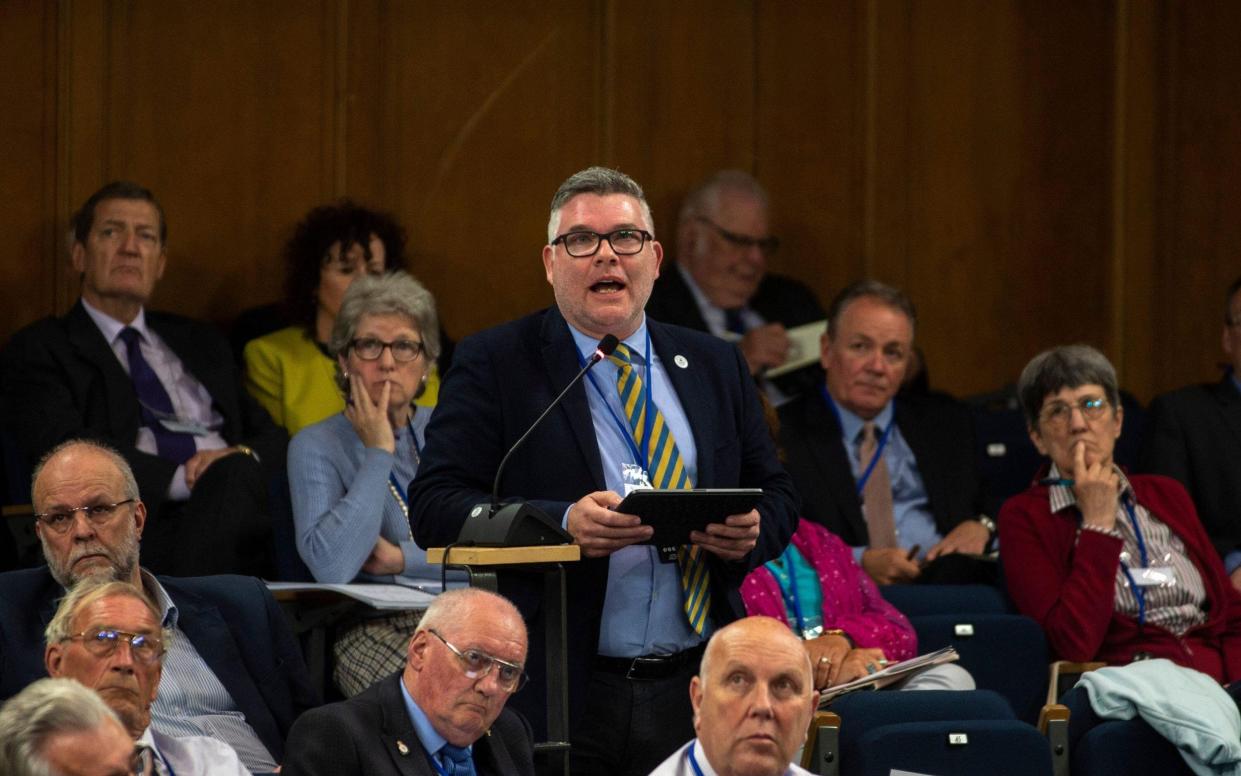Church of Scotland to allow gay marriages for first time

The Church of Scotland will allow gay marriages for the first time following a historic vote, but clergy can opt out of holding services.
The church’s General Assembly, its decision-making body, voted by 274 to 136 on Monday to allow its ministers and deacons to opt to officiate at same-sex weddings, ending a centuries-old prohibition.
The vote makes the Church of Scotland the largest church in the UK to allow gay marriages.
However, it comes as the Church of England has consistently refused to approve same-sex marriages, and many will see the latest vote as yet further pressure on the institution south of the Border.
The Church of Scotland’s legislation will now be updated to remove references to a marriage taking place between a husband and wife, and refer instead to “parties”.
Within minutes of the result being announced, some ministers revealed that they had immediately applied to be registered to carry out same-sex weddings, including the Rev James Bissett, a chaplain to the Royal Air Force’s air cadets.
The move was also welcomed by equalities campaigners, and Scotland’s Churches Trust said the first weddings would take place soon.
Clergy can opt out
However, the Church of Scotland’s vote will not require clergy to conduct same-sex marriages. A report to the General Assembly makes it clear that no person would be required to participate in the solemnisation of, or be involved in the arrangements for, a same-sex marriage unless they explicitly wished to do so.
But it does mean that they can now allow parish ministers and deacons to marry same-sex couples if they wish.
The Rev Craig Dobney, who was among those who urged commissioners to approve same-sex marriage, said: “I’ve seen the heartbreak of those in same-sex relationships in our congregations who are unable to marry in their home church, devout Christians though they are. To be married, in front of their church families, would mean everything to them but they were not able to do so.
“I worry that our churches have become irrelevant to our communities. We can stay in our ivory towers, in our marble mansions, in our granite buildings and sit there thinking quite happily that we are following scripture by stopping people from coming to our churches, by making people unwelcome.
“We talk about being a welcoming church, I sometimes have to question that. Actually, the question we should be asking is: are we as a church welcome in our communities?”
In contrast, others questioned whether approving the move would put people under pressure to be involved in same-sex marriages even if they did not wish to do so, or make it more of a personal issue for ministers rather than the institution of the church.
In 2017 the Scottish Episcopal church, which is Anglican, voted at its synod to approve same-sex marriages, becoming the first in Scotland to do so. The Church of Wales has indicated it may follow suit in several years’ time. Meanwhile, Methodists, Quakers and the United Reformed church already conduct ceremonies.
Church of England to find a ‘way forward’ in coming year
A spokesman for the Church of England said: “Since November 2020 the Church of England has been carrying out a process of listening and learning about questions of identity, sexuality, relationships and marriage which, it is hoped, will help the bishops to discern a way forward for the Church on these vitally important questions.
“The findings of the listening exercise will be published this autumn and will feed into the bishops’ discussions. It is expected they will then publish recommendations in time for the February meeting of General Synod in 2023.
“Although there are deep and painful divisions within the Church of England over questions of identity, sexuality, relationships and marriage, the bishops hope that by listening prayerfully to this church-wide learning and engagement, a way forward for the Church of England will emerge in the coming year.”


